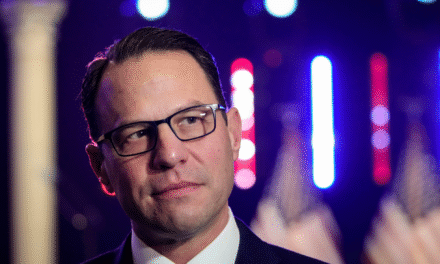The CMS Director told Politico and Fox News that work requirements and elimination of fraudulent payments are necessary to preserve the integrity of the program.
Dr. Mehmet Oz, the high-profile physician turned Trump-appointed administrator of the Centers for Medicare and Medicaid Services, is publicly defending GOP efforts in the “one big, beautiful bill” to implement reforms in Medicaid.
In a recent appearance on The Conversation with Dasha Burns, Oz said the proposal, which implements work requirements for certain Medicaid recipients will “future proof” the program, aligning it with the Trump administration’s intent to safeguard key social services.
“Every great people take care of their most vulnerable, and we’re a great nation,” Oz remarked in the interview set to air Sunday. “We’re gonna do that.” He emphasized the importance of preserving care for individuals with disabilities, low-income seniors, and children, while pushing back against criticisms that the policy would erode those protections.
According to Oz, both he and former President Donald Trump share a commitment to preserving Medicaid’s long-term viability. “I’m trying to save Medicaid,” he asserted. “That’s the president’s goal as well. He said over and over again, he wants to love and cherish these programs, and we need to keep them viable.”
Oz, however, maintained that the American public supports the administration’s call for work requirements. “We’re not cutting Medicaid,” he told Burns. “I’ve seen the proposals. There is no proposal I’ve seen, in fact, in fairness, that doesn’t increase spending on Medicaid.”
In a wide-ranging interview on Sunday Morning Futures recently, Oz outlined his concerns over widespread inefficiencies and misuse within Medicaid—and urged reforms that, he says, are necessary to preserve the integrity and sustainability of the program.
“Work requirements aren’t about forcing employment,” Oz explained. “They’re about encouraging engagement—whether it’s pursuing education, volunteering, or contributing to the household. We have more job openings than job seekers in this country. If you’re able, you should be participating in some way. It’s not just good policy—it’s good for individuals and good for the nation.”
Advocates for work requirements say it will provide a “push” for those on government welfare programs who “may lack confidence, have become discouraged, or have no idea how to get started” looking for a job or training.
Oz also pointed to persistent issues of waste, fraud, and abuse that, according to federal audits, are draining billions in taxpayer dollars and undermining care for those most in need. “Medicaid was designed to support our most vulnerable; children, the elderly, and people with disabilities,” Oz said. “But right now, too many resources are being diverted to ineligible recipients, and that needs to be corrected.”
One example, he noted, is the issue of duplicate enrollment across state lines. “We’ve identified roughly $14 billion in improper payments due to individuals being enrolled in multiple state Medicaid programs,” he said. “If someone moves from New Jersey to Pennsylvania, both states may end up receiving federal dollars for the same person. That’s an obvious and solvable problem.”
While Democrats in Congress have used a Congressional Budget Office analysis of the bill saying as many as 7.6 million Americans could lose Medicaid coverage, Trump said in April when appointing Oz to CMS that there would be no cuts to the program during his presidency.






